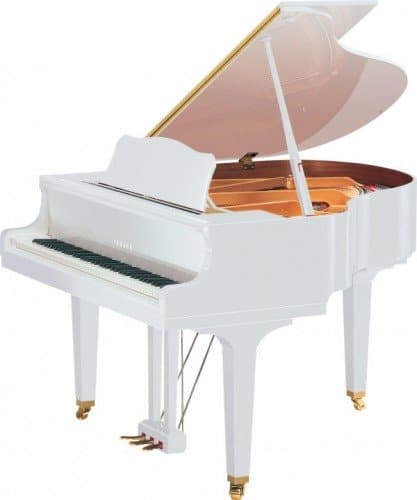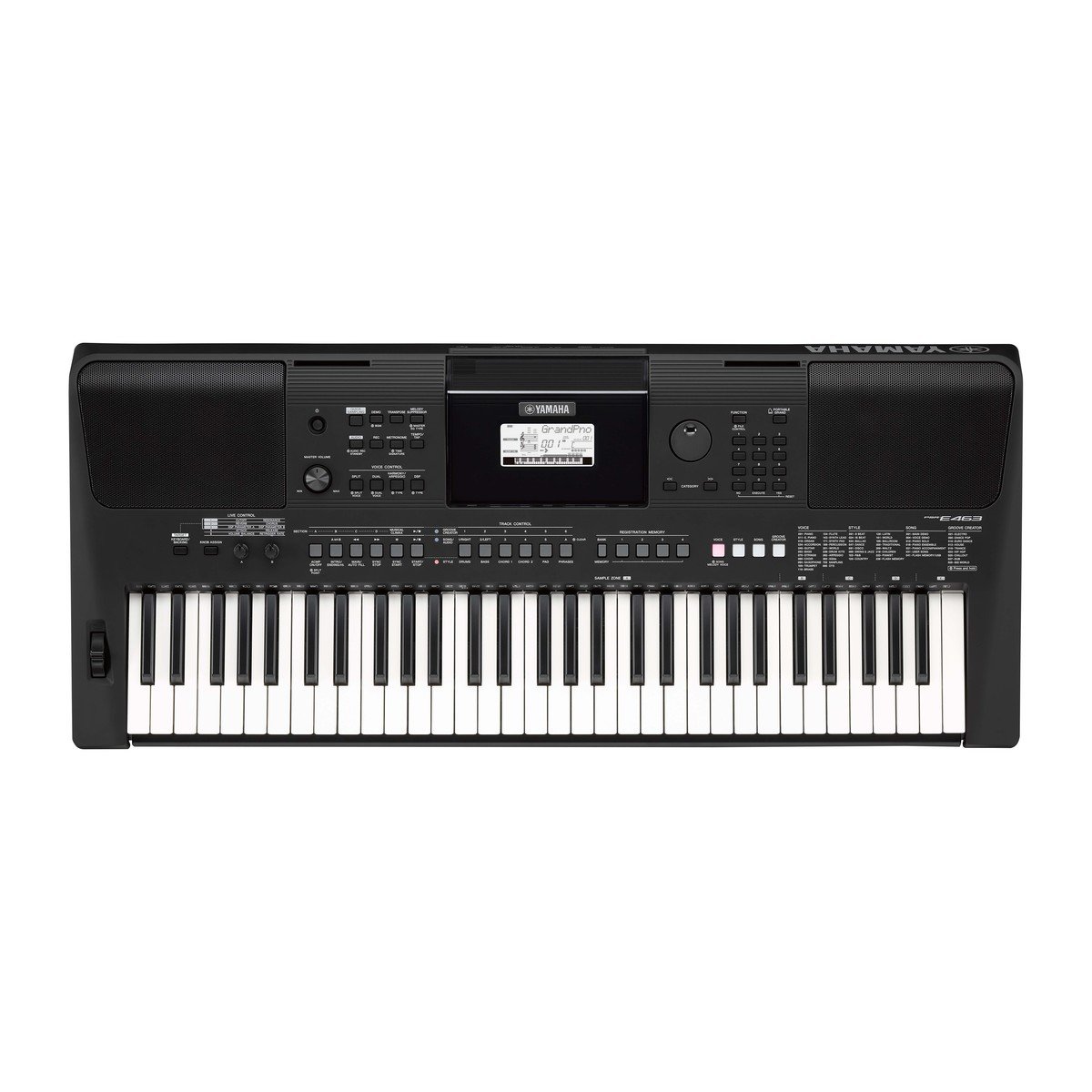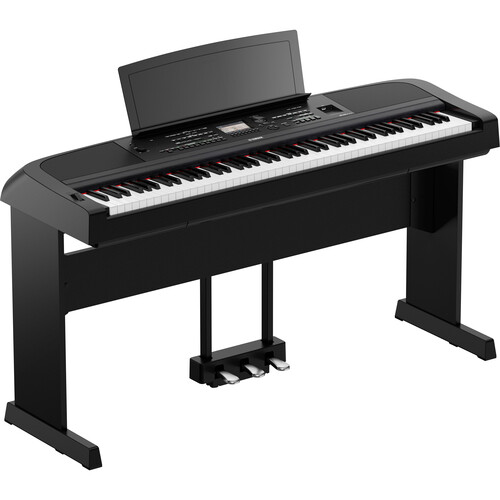The cost of pianos in Nigeria ranges from NGN 100,000 to NGN 2,500,000. Prices vary depending on type, brand, and quality.
Pianos remain an esteemed musical instrument across Nigeria, attracting a diversity of buyers from professional musicians to novices with a passion for music. From sophisticated grand pianos gracing concert halls to compact digital keyboards suitable for small living spaces, there is a piano for everyone.
Key factors influencing price include size, acoustic quality, and technological features. Recognizing the wide spectrum of pianos available, prospective buyers must consider their skill level, space, and budget when making a purchase. High-end brands like Steinway, Yamaha, and Kawai often demand a premium; nonetheless, affordable options are readily accessible in Nigerian markets, both new and used. With such a broad price range, any aspiring pianist can find a suitable instrument to begin or continue their musical journey.
The Allure Of Pianos In Nigerian Culture
The Allure of Pianos in Nigerian Culture spans generations and regions, weaving a tapestry of sound and tradition. Across Nigeria, pianos symbolize a rich musical heritage. They spark joy at gatherings and elevate the arts. This deep appreciation shapes the demand for pianos—despite the variable cost in Nigeria’s vibrant market.
Piano’s Role In Nigerian Music
In Nigerian music, the piano’s role is pivotal. It brings a unique dynamism to both contemporary and traditional genres. From the rhythmic expressions in Afrobeats to the soulful chords in Highlife, pianos enrich melodies.
- Versatility: Adapts across multiple genres.
- Education: Used in schools to teach music.
- Production: Essential in music studios.
Influence On Social Events
Pianos grace many social events in Nigeria. They set the ambiance at weddings, birthdays, and religious ceremonies. Live piano music can turn any gathering into a memorable event.
| Event | Role of Piano |
|---|---|
| Weddings | Creates romantic background music. |
| Church Services | Accompanies choirs and congregations. |
| Festivals | Enhances the cultural experience. |
Pianos emerge as cultural icons, resonating with emotion and community spirit.

Credit: cousinsnigeria.com
Types Of Pianos Available In Nigeria
The vibrant musical scene in Nigeria boasts an array of pianos catering to different players and purposes. From the majestic grand pianos gracing concert stages to the compact digital keyboards suited for home use, the selection is vast. Whether you’re a professional musician or a budding enthusiast, understanding the various types will help guide your purchase to find the perfect match for your musical journey.
Grand And Baby Grand Pianos
Grand and Baby Grand pianos stand out as the jewels of any musical space. Known for their rich, resonant sound, these instruments feature horizontal frames and strings. They are available in various sizes, with Baby Grands being a more space-conscious option while still providing superior sound quality compared to other types.
- Superb acoustics for concert performances
- Elegant design, a centerpiece of decor
- Ideal for serious pianists and institutions
Upright Pianos
Upright pianos, with their vertical strings and more compact design, fit easily in homes and schools. They take up less floor space while still offering a warm, full tone. You will find various brands, each with unique characteristics that contribute to different sound qualities.
- Space-efficient, suitable for smaller rooms
- Diverse range of brands and models
- A blend of affordability and quality
Digital Pianos And Keyboards
Digital pianos and keyboards offer versatility and portability that acoustic pianos cannot. These electronic instruments come with features such as built-in sounds, volume control, and headphone jacks, making them ideal for apartment living and practice sessions. Keyboards especially stand out for their lightweight design and ease of use.
| Feature | Digital Piano | Keyboard |
|---|---|---|
| Weighted Keys | Yes | No |
| Built-in Rhythms | Some models | Yes |
| Portability | Less portable | Highly portable |
- Comprehensive features for all levels
- Convenient for quiet practice
- Simple setup for gigs and travel
Price Factors For Pianos In Nigeria
Thinking of buying a piano in Nigeria? Many factors affect their prices. Understand these, and you’ll find the right piano for your budget. Let’s explore these factors.
Brand And Model
The piano’s make and design greatly influence its cost. Top brands like Yamaha and Steinway command higher prices. Lesser-known brands may offer more affordable options. Models with advanced features, like digital interfaces, also cost more. Here’s a quick breakdown:
- High-end brands – More expensive.
- Mid-range brands – Balance between cost and quality.
- Budget brands – More wallet-friendly.
New Vs. Used
Choosing between new and used can shape your budget. New pianos shine with unrivaled quality but carry premium prices. Pre-owned pianos offer significant savings, but it’s vital to check their condition. Consider these contrasts:
| Factor | New Piano | Used Piano |
|---|---|---|
| Price | Higher | Lower |
| Condition | Perfect | Varies |
| Longevity | Longer | Depends on past use |
Import Duties And Taxes
Pianos brought into Nigeria face import duties and taxes. These additional costs can be significant. Imported pianos are generally more pricey due to these charges. Consider local alternatives to avoid high import costs. Key points include:
- Import duties can increase the price.
- Taxes vary based on piano value and type.
- Find local dealers to minimize these costs.

Credit: cousinsnigeria.com
Where To Buy Pianos In Nigeria
Finding a piano in Nigeria can seem daunting. Pianos are an investment, both financially and culturally. They bring music into our homes and hearts. The hunt for the perfect piano takes one to various places, from bustling marketplaces to quiet showrooms. This guide highlights the best places to search for your dream piano in Nigeria.
Music Stores And Showrooms
Music stores and showrooms offer a hands-on experience. You can touch and feel the pianos. Experts guide you through the features and sound quality. They can answer all your questions.
- Find locations with a wide range of models.
- Experience different brands and sizes.
- Get advice and after-sales services.
Ask for guarantees and warranties when you visit. Your local music hubs usually have pianos on display.
Online Marketplaces
Online shopping provides convenience. You can browse pianos from your home. Online marketplaces list numerous sellers and brands. Here’s what you can do:
- Visit e-commerce websites like Jumia and Konga.
- Use filters to narrow down your options.
- Read customer reviews for quality assurance.
- Compare prices and find good deals.
Check for return policies before purchasing online. Secure payment options are available on these platforms.
Importing Directly
Importing a piano could be another option. This means buying from overseas. Here are some benefits:
- Access to international brands not available locally.
- Often find better prices, even with shipping costs.
- Possibility of custom orders to your liking.
| Step | Action | Consideration |
|---|---|---|
| 1 | Choose a global seller | Reputation and reliability |
| 2 | Inquire about shipping to Nigeria | Cost and time |
| 3 | Understand import taxes | Additional expenses |
Work through a certified importer. They help with customs and delivery.
Maintaining Your Piano Investment
Once you’ve invested in a piano in Nigeria, prioritizing its care is vital. Like any valuable asset, a piano requires attention and regular maintenance to keep it in top shape and preserve its value. By adopting a routine for the upkeep of your piano, you are not only enhancing its performance but also securing its worth over time.
Regular Tuning And Servicing
To maintain the pristine sound of your piano, regular tuning and servicing are musts. Pianos should ideally be tuned twice a year. This consistency helps to keep your piano sounding perfect. Periodic servicing, such as action regulation and hammer voicing, also ensures that each note plays smoothly and maintains its intended timbre.
- Sticking keys? It might be time for action regulation.
- Sound seems off? Hammer voicing can restore its original tone.
Protecting From Humidity And Pests
Humidity and pests can wreak havoc on pianos. It’s essential to keep your piano away from windows and doors where direct sunlight and moisture can cause damage. Instruments are best kept in climate-controlled environments. Employ covers and regular cleanings to deter pests like insects and rodents, which can severely affect the piano’s internal mechanisms.
| Humidity Level | Maintenance Tips |
|---|---|
| Low | Consider a humidifier |
| High | Use a dehumidifier and keep the room well-ventilated |
Resale Value Over Time
With the right care, the resale value of your piano can remain high. Keep documentation like the purchase receipt, a record of all tunings, repairs, and official appraisals. These papers prove the piano’s history of care, which can greatly influence its market value. Pianos with a well-documented maintenance history are often more desirable and can fetch a better resale price.
- Save all maintenance records.
- Get your piano appraised.
- Repair any damage immediately.
Lessons And Learning Resources
Are you eager to learn piano in Nigeria? Great decision! Pianos can cost a lot, but that’s just the start. Getting the right lessons and resources is key. Whether you prefer a private tutor or learning online, you have plenty of options.
Finding Piano Teachers
Finding a skilled piano teacher is your first step. Good teachers spark your music passion and help you learn faster. Many music schools in Nigeria offer piano lessons. Or you can find freelance piano tutors in your area.
Cost Of Lessons
Lesson prices vary depending on the teacher’s experience and your location. Here is a quick look at the average cost:
| Teacher’s Experience | Cost Per Lesson |
|---|---|
| Beginner | ₦2,000 – ₦5,000 |
| Intermediate | ₦5,000 – ₦8,000 |
| Expert | ₦10,000+ |
Some teachers might offer discounts for a bundle of lessons.
Online Tutorials And Courses
The internet is a treasure trove for learning piano. Online tutorials and courses are abundant. Find courses that fit your level and style. Here are benefits of online learning:
- Learn at your own pace
- Access a variety of music genres
- Often cheaper than in-person lessons
Platforms like YouTube have free tutorials. Websites offer structured courses, sometimes with a fee.

Credit: mace.ng
Is the Price of a Clavinova Piano Comparable to Regular Pianos in Nigeria?
When comparing the price of a Clavinova piano to regular pianos in Nigeria, the Clavinova piano price guide can be a helpful reference. In general, the price of a Clavinova piano tends to be comparable to that of regular pianos, making it a viable option for musicians in Nigeria.
Frequently Asked Questions For How Much Is Piano In Nigeria
How Much Is Piano In Nigeria Money?
The price of a piano in Nigeria varies greatly, ranging from approximately 80,000 to over 2 million Naira, depending on the brand, type, and condition.
How Much Is An Upright Piano In Nigeria?
Upright piano prices in Nigeria range from ₦150,000 to ₦1. 5 million. Costs vary based on brand, condition, and specifications.
How Much Is A Whole Piano?
The cost of a whole piano varies widely, typically ranging from $3,000 up to $100,000 or more for high-end grand pianos.
How Much Is Yamaha Psr E373 In Nigeria?
The Yamaha PSR E373 keyboard typically costs between 90,000 and 120,000 Nigerian Naira, depending on the retailer and location.
Conclusion
Exploring piano costs in Nigeria reveals a diverse market. Affordable options are available for beginners, while professionals can find high-quality instruments. Remember to factor in delivery and tuning services. Investing in a piano offers a blend of culture and artistry, resonating with music lovers across Nigeria.
Choose wisely to ensure lasting musical joy.
